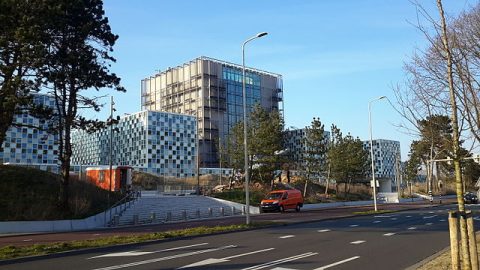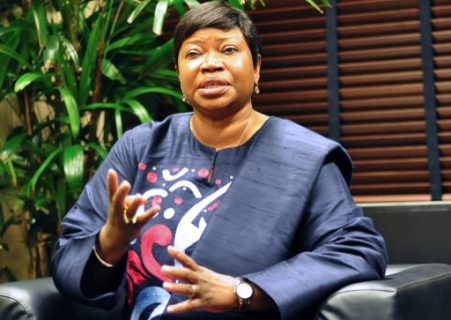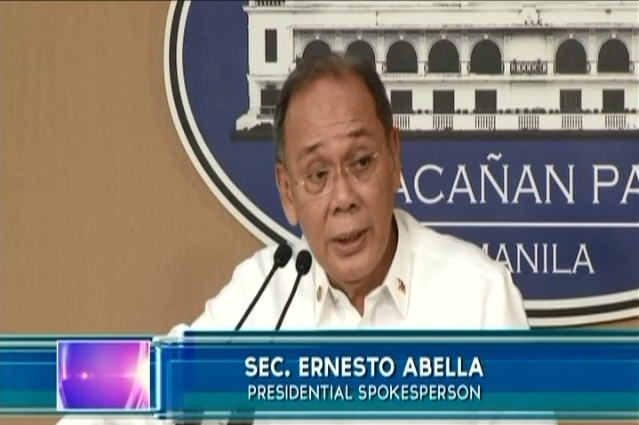
The prosecutor of the International Criminal Court (ICC) Fatou Bensouda has confirmed that her office has received the communication of a Philippine lawyer who is seeking the investigation of President Rodrigo Duterte for allegedly committing “mass murder” regarding the Philippine government’s anti-illegal drugs campaign.
Lawyer Jude Sabio, legal counsel of confessed hitman Edgar Matobato, filed a 77-page information against the President before the ICC, along with 11 of his allies, accusing him of committing crimes against humanity.
Sabio travelled to the Hague to personally file his communication at the world’s only permanent war crimes court.
He urged the prosecutor at the ICC in The Hague to investigate Duterte and senior administration officials and bring charges of crimes against humanity against them for “the terrifying and gruesome situation of continuing mass murder in the Philippines.”
Sabio claimed that Duterte “began his strategy or system of eliminating or killing persons suspected of crimes, including drug addicts and pushers” when he became mayor of Davao City in 1988.
ICC prosecutor Bensouda’s office confirmed to AFP it had “received a communication earlier Monday morning by an attorney from the Philippines,” adding it would “analyze the materials submitted, as appropriate” in line with the tribunal ‘s guiding Rome Statute and make its decision later.
Sabio in his communication criticized Duterte’s drug war.
“The ‘repeated, unchanging and continuous’ mass murder being conducted by President Duterte has already resulted into the deaths of not less than 1,400 individuals in Davao City under his Davao Death Squad and not less than 7,000 individuals in his war on drugs at the national level,” the filing said.
Palace says Sabio’s action timed to embarrass Duterte on ASEAN hosting
Presidential Spokesperson Ernesto Abella questioned the timing of the filing of a case against President Rodrigo Duterte on Monday before the ICC, happening as it is on the debut of the Association of Southeast Asian Nations Summit hosting of the Philippines this week.
The timing of the filing of the case is suspect — apparently meant to create negative news in the midst of the Philippines ASEAN debut; as it cannot prosper,” Abella said in a statement.
He also pointed out that Sabio proceeded with the filing of the case with the ICC in the Hague, Netherlands, although he had not exhausted all legal remedies in the country.
“(ICC) rules provide that the ICC, as a court of last resort, will only exercise jurisdiction over a case once legal remedies in the Philippines have been exhausted,” he said.

ICC prosecutor earlier expressed concern about PHL killings
In October, ICC prosecutor Bensouda said she was “deeply concerned about these alleged killings and the fact that public statements from high officials of the… Philippines seem to condone such killings.”
She warned that “any person in the Philippines who incites or engages in acts of mass violence including by ordering, requesting, encouraging … the commission of crimes within the jurisdiction of the ICC is potentially liable for prosecution before the court.”
Since beginning work in 2002, the ICC says the prosecutor’s office has received some 10,000 requests from individuals, groups or countries around the world to investigate alleged crimes.
It is then up to the prosecutor to decide if there is enough cause to open a preliminary inquiry into whether a full-blown investigation is merited.
There are currently 10 preliminary examinations, and 10 full investigations under way.
A total of 23 cases have been recognized, securing nine convictions and one acquittal.
Five trials are ongoing.
Police already probing killings – Palace spokesperson
The Philippine government denies the allegations, and presidential spokesperson Abella said Monday that police were already probing those suspected “of violating procedures.”
He also pointed to an investigation by the country’s Senate, in which Matobato was a star witness, and said the ICC “as a court of last resort, will only exercise jurisdiction over a case once legal remedies in the Philippines have been exhausted.”

“The so-called ‘extrajudicial killings’ are not state-sanctioned or state-sponsored. Police authorities are conducting legitimate operations that require observance of operational protocols,” Abella added.
According to the latest national police figures, police have shot dead 2,087 drug suspects, while unknown killers have murdered 1,398 others in cases described by investigators as “drugs-related.”
Earlier official figures had put the death toll much higher, including some 4,200 killed in unexplained circumstances.
Abella said the complaint was filed “clearly to embarrass and shame the President, and undermine the duly constituted government of the Philippines.”
“It is a cynical effort against the reform-oriented agenda of the Duterte Administration and of the betterment of the lives of the Filipino people,” he said.
Duterte won the election by a landslide last May largely on his promise to launch a war on illegal drugs.
Although the campaign has proved popular at home, the president has faced international criticism for the thousands of alleged extrajudicial killings.
(with a report from Agence France Presse)







